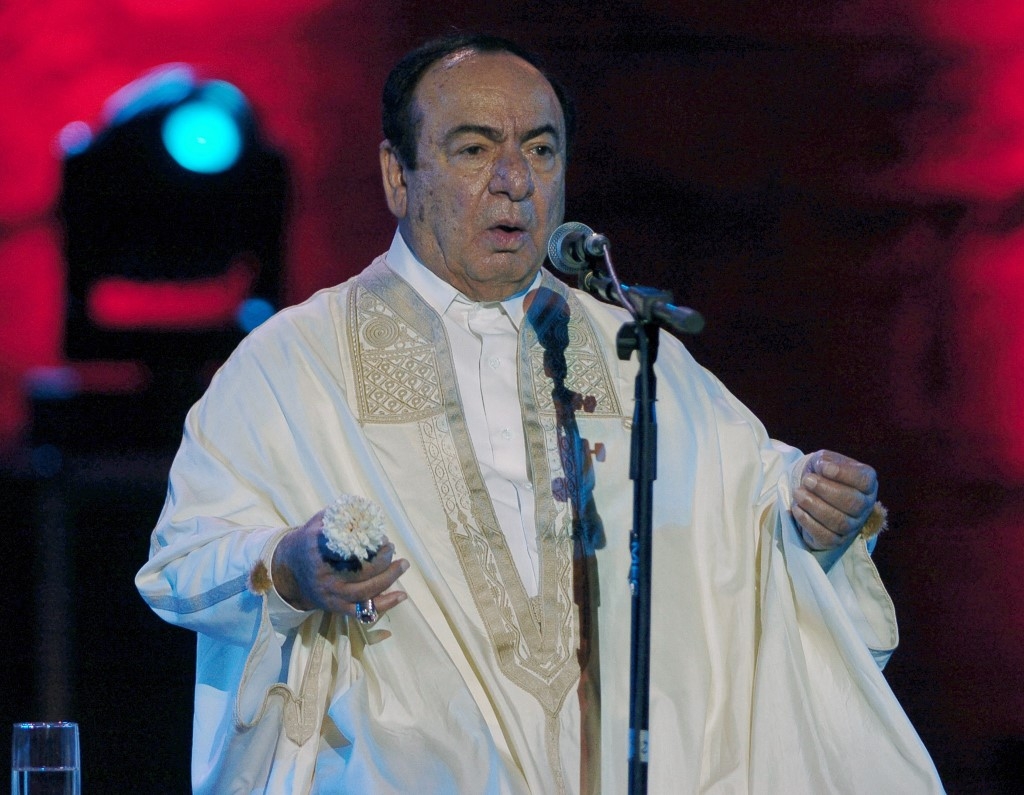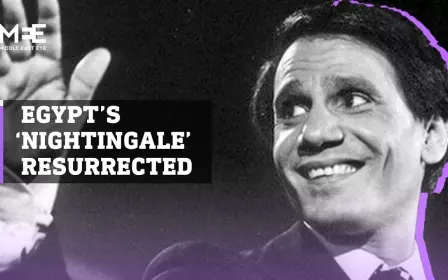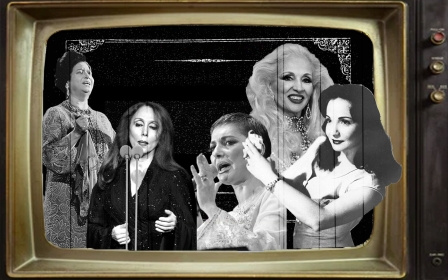Sabah Fakhri: Tributes pour in for iconic Syrian singer

Tributes are pouring in for the iconic Syrian singer Sabah Fakhri, who died in Damascus on Tuesday aged 88.
The singer was largely known across the region for his distinctive singing style, as well as popularising traditional Arabic poetry through his songs. His concerts would go on for hours, and would attract thousands of loyal fans.
Fakhri, real name Sabah Abu Qaws, was born in Aleppo in 1933, and came to singing after first becoming a muezzin - someone who makes the call to prayer.
Fakhri was also a record-breaker, listed in the Guinness Book of Records for singing for 10 hours without a break, in the city of Caracas, Venezuela.
The iconic singer was most well known for Qudud Halabiya, a traditional form of music which hails from Aleppo, and combines lyrics based on the poetry from al-Andalus with religious melodies.
Stay informed with MEE's newsletters
Sign up to get the latest alerts, insights and analysis, starting with Turkey Unpacked
Some of his most famous songs include Ibaatli jawab (Send Me a Letter), Sibooni ya Naas (Leave me, People) and Maalik ya Hilwa? (What’s wrong, gorgeous?). His songs explored themes of love and belonging.
Online, people have shared tributes, remembering the life of Fakhri and mourning his loss.
Many have praised the singer for leaving behind a rich artistic legacy. Fakhri’s first concert was in 1948, where he sang at the presidential palace in Damascus during the time of President Shukri al-Quwatli.
Fakhri’s talent ran in the family, with his father being a reciter of the Quran as well as a Sufi chanter. His mother hailed from a religious family, and would also conduct Sufi circles of remembrance.
The singer also studied singing and music in Aleppo and Damascus.
Fakhri was also closely associated with the tarab singing style, a form of classical Arabic music that evokes a strong emotion.
Fakhri is survived by four sons, including his son Anas who is also a singer.
Middle East Eye delivers independent and unrivalled coverage and analysis of the Middle East, North Africa and beyond. To learn more about republishing this content and the associated fees, please fill out this form. More about MEE can be found here.




